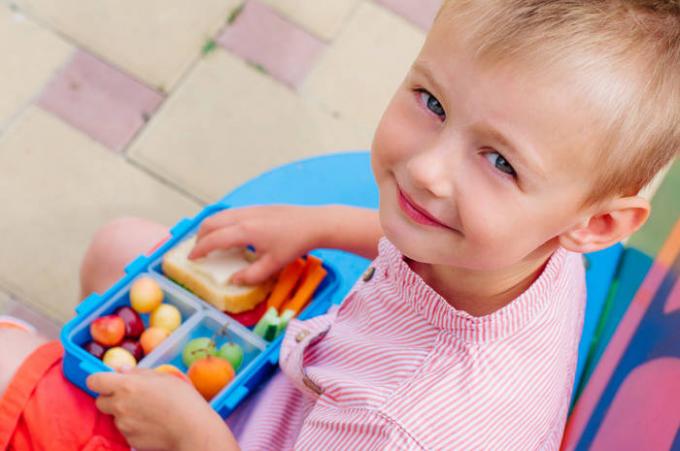Baby toys are not even willing to clean up after themselves, to say nothing of the fact that he wiped the dust or watered flowers?! How to teach a child to domestic affairs? About this in our article
Many mothers make the mistake: first, they charge everything on yourself, because it is a pity the child's weight, and most do everything much easier and faster. Then resent him for what he does not want to help. Begin to make it, but he resists. In order not to be caught in this trap, act differently.
That the child's trust?
I do not think that the baby is too small to help my mother. The sooner you start to bring him to a home business, the easier it will be for both of you.
- From 2 to 4 years. A small child very much attached to his mother and will be happy to fulfill any of its mandate. Bring her the necessary thing to throw candy wrappers in the trash along with her to collect toys to help her wash the vegetables.
- From 4 to 7 years. The child may have to put your things in the closet (if still crumpled, do not worry), to learn about making the bed, their own clean toys in place, to help set the table, after a meal to put the dirty dishes in the sink, wash dishes, wipe the table, as well as dust in his room.
- 7 years and older. With this age can begin to attach the child to "serious" cases: clean vegetables, sew on buttons, wash dishes and floor, make sandwiches, take care of the flowers and pets.
Prohibited methods in teaching assistants
This "age divide" is very conditional. If the 7-year-old kid does not know about making the bed, it does not matter. Maybe accuracy - just not his strong point, but he was happy with you preparing? But if he refuses to help, this is a bad sign. You may have incorrectly behaving?
What absolutely can not
1. Raise your voice. Increased tone, and even more so nobody cries like: small children they scare, annoy teenagers. Remember how irritated you yourself react to them. Moreover, they rarely lead to the desired result. Even if you now will achieve its ( "so that only my mother did not cry"), it certainly does not call up the child's desire to help you.
2. Punish. Deprive sweet, entertainment or apply physical impact - a bad way. Prohibitions do not teach love for cleanliness and order, but the fear of extremely negative impact on the psyche.
3. Blame, calling child slacker, lazy and slackers. So you only reduce his self-esteem.

How to teach a child to help: Top 7 effective ways / pixabay.com
What to do to domestic affairs do not become a burden
- Engage. Bytom and adults do not want to deal with. But each of us carries them with pleasure, or at least without the "hate": one likes to cook, another stroke. Find what the child does with hunting, and proceed from this. For example, clean up toys bored. But put them to sleep in a crib-box, goodnight, sing a lullaby - is another matter.
- Teach. 1 time show, and then charged with the duty? That will not do. Together to do a few times to repeat traveled by, and then to trust, to oversee the implementation.
- Motivate. Praise your child, build a little surprises. For example, bake a cake, writing on it, "the best assistant." Incidentally, the preparation can be turned into a cheerful workshop: to play in the restaurant (you - the chef, he - cook or waiter). Search the web examples of funny sandwiches, original filing of different dishes.
4 important rules for adults
If you want to have an assistant grew primarily pay attention to yourself.
- A positive example. If a child sees that parents maintain cleanliness and order, it will be much easier to teach to do the same. But if it is surrounded by a mess and dirt... You know the theory of broken windows? If in an abandoned house break one glass, then pretty soon there will not be a single whole. The mechanism is simple: if someone is possible, and me too.
- Not at home, you can? When you are outside, you make sure that the baby denounced wrap up boxes, or allow him to throw it on the ground? After the picnic, you clean up after a litter or leave? It is important to show your child that cleanliness should be maintained everywhere, not just at home. As well as help you need to not only know, but also to other people, to bring a bag or a neighbor to give up granny seat on the bus.
- Continuity and consistency - your helpers! To cleaning toys, drawing things in the closet, washing his mug of tea after become commonplace affairs of which does not need to be reminded not to be consistent in these requirements, but in their own concerns about the order.
- Encourage your child but do not put your home help in commodity-money relations. Today you pay him for the cleaning, and tomorrow he will put a condition: "I'll wash the windows, if you let me... "This is not aid but trade.
Also you will be interested to read this: how to get him to help with household chores

